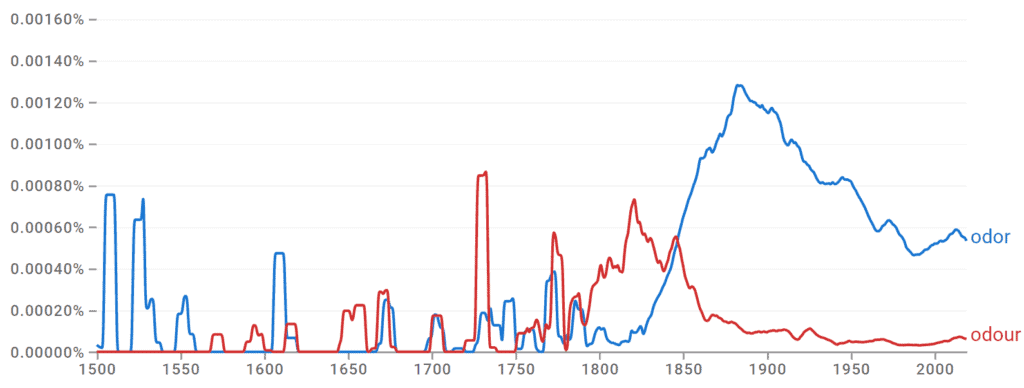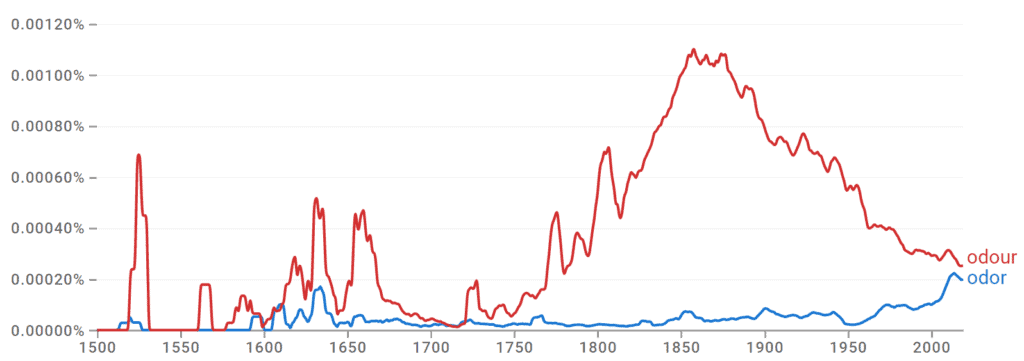Seriously. Why are there so many words in the English language that have more than one spelling?
To understand why an extra letter is often added to many words without changing the meaning or pronunciation, you must first understand how American English adapted certain British English words.
American spellings are commonly phonetic in nature, dropping vowels that are not part of the pronunciation and seemingly exist due to centuries-old etymological influences. Odor and odour are perfect examples of this. Both mean the same thing and are pronounced the same but have spellings common to different English-speaking countries.
What’s the Difference Between Odor and Odour?

Odor and odour are the same words, meaning the quality of something that triggers the olfactory organ – otherwise known as the sense of smell. It is a noun referring to a scent detected by your nose.
The only difference between the two words besides the extra vowel is where they are commonly used. Odor is the preferred American English spelling and is predominantly used in North America. Odour is more prevalent in British English-speaking countries, including the UK, Australia, and New Zealand. It is also common in countries that teach English using British-influenced texts and curricula.
Odor Is the American Spelling

Following the American Revolutionary period, perhaps as a symbolic way to distance themselves from the British, many words began to see an Americanization of sorts. For the most part, these words simply dropped the letters deemed unnecessary to the phonetic pronunciation.
Examples of this include humour vs. humor, neighbour vs. neighbor, and colour vs. color.
American English also utilizes the suffixes -ize and -yze in keeping with the “z” sound, while the British use -ise and -yse.
For example:
- The fire detectors can also pick up on chemical odors and particulates that could create a volatile situation.
- When potty training a new puppy, buying cleaners that remove the odors that attract the dog back to the same place is essential.
Odour Is the British Spelling

Odour is much more popular in the United Kingdom and Australia than anyplace else, with both odor and odour used in various contexts in other countries.
British English spellings are much more closely related to Germanic and French etymological influences than American spellings.
For example:
- She wrinkled her nose at the foul odour when stepping through the door, pointing her torch in the direction of where the smell seemed to emanate from.
- His mother baked biscuits, and the sweet, chocolatey odour permeated the entire house.
The Origins of Odor and Odour
The British spelling of odour comes from the 12th-century Anglo-French odour in keeping with their accented pronunciation. The British adapted the French spelling despite the modern French spelling changing to oduer.
Odor is the older spelling directly from Latin, odor, and has kept its original meaning of “a smell, a scent, fragrance” through the centuries.
Let’s Review
Despite the difference in spelling, odor, and odour are the same word to mean scent or smell of the quality of something. Odor is the American spelling of the word, while odour is the British spelling.

Comments are closed.